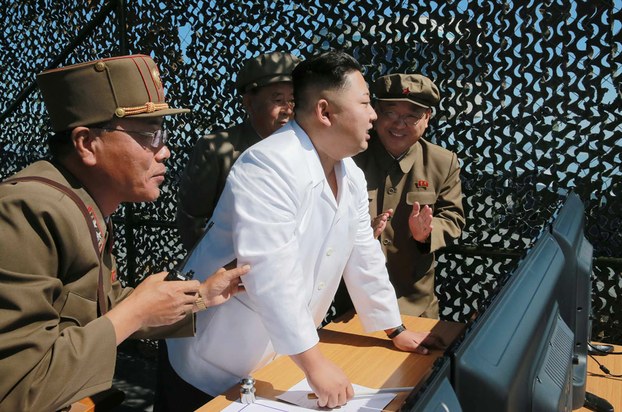




On Sept. 20, China put Ma Xiaohong and her Hongxiang Industrial Development Co. Ltd. under criminal investigation for selling North Korea materials for Pyongyang’s nuclear weapons program. Changsop Pyon of RFA's Korean Service asked North Korea experts Andrei Lankov of Kukmin University in Seoul about the impact of China's move, which came as pressure mounted on Beijing to do more to rein in its ally.
RFA: How do you assess the Hongxiang case and China's actions?
Lankov: This is not something that has happened out of the blue. China’s policy toward North Korea has two conflicting trends. Namely, China doesn’t welcome North Korea’s nuclear development at all, but at the same time it doesn’t want to push for economic hardship on the North hard enough to lead to its collapse. Above all, as a recognized nuclear power, China regards nuclear proliferation as a grave issue. China regards North Korea’s development of nuclear weapons and long-range ballistic missiles as a threat to its own security. Accordingly, Beijing does not cooperate with Pyongyang at all in the nuclear and missile area, and strictly controls any trading of those parts and materials necessary for North Korea’s nuclear development.
RFA: Does China's probe into the Hongxiang case demonstrate a commitment to enforce U.N. sanctions?
Lankov: Displeased with South Korea’s recent THAAD deployment decision, China has started easing its economic pressure on North Korea, but it’s strongly opposed to the North’s nuclear development. Pyongyang’s nuclear development can lead Seoul and Tokyo to follow suit. Also, various terrorist groups around the world can gain access to nuclear material due to the North’s nuclear pursuit. Although most of the terrorist groups are operating in Middle East, mainly targeting the U.S. and other Western countries, there are some aiming at China.
RFA: Is it possible Chinese officials were complicit in Hongxiang's illegal dealings with North Korea?
Lankov: I guess so. China is a country with lots of corruption. The fact that Ma Xiaohong was a delegate of the National People's Congress of Liaoning Province shows her relationships with the power elites in Dandong were very good. Ma must have realized from the beginning that Hongxiang’s dealings with North Korea were dangerous and risky. That’s why Ma kept such good relations with the local political heavyweights and clearly bribed them. Although Dandong officials may have tacitly approved Hongxiang’s illegal dealings with North Korea, they are far from the real power and the eyes of the Chinese central government, and when Beijing finally detected these illegal dealings, it ordered an official probe immediately.
RFA: Will a conviction of Hongxiang executives deal a fatal blow to Chinese-North Korean trade?
Definitely Hongxiang’s conviction will deal a very hard blow to North Korea’s trade with China, but it will be far from a fatal one. I stressed this point several times, but let me repeat: China won’t allow the North Korean economy to plunge into a serious crisis.
RFA: Will China stop the export of strategic or dual-use material to North Korea?
There is no way for China to stop its companies from exporting strategic materials to North Korea completely. China is a very big country. There are many, many traders in China who want to do trading with North Korea, because they know any trading with the North might be risky, but at the same time very profitable. Accordingly, the Chinese authorities might not be able to succeed in stopping Chinese companies’ strategic trading with the North. Of course, China’s continued crackdown will lead to a decrease in those businessmen and companies trying to do such trading.
Reported and translated by Changsop Pyon for RFA's Korean Service.